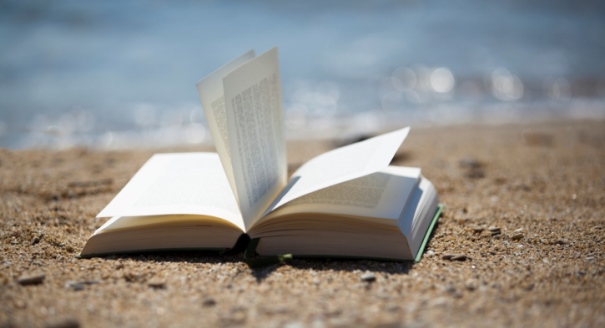Time for Strategic Europe’s annual summer reading suggestions! Carnegie Europe has asked a cross section of diplomats, policymakers, and analysts to share their favorite books.
Thomas de WaalSenior associate in Carnegie’s Russia and Eurasia Program
Fiction
Austerlitz by W. G. Sebald. A book that turns you inside out. I can’t say any more without revealing its secrets. It just needs to be read.
Book from your home country (United Kingdom)
Too many!
Recommendation for the EU’s next foreign policy chief
Black Sea by Neal Ascherson. Ascherson reminds us that the European Union is far from being Europe’s first civilizing or unifying project. For hundreds of years, the Black Sea was Europe’s melting point and locus of innovation. Moreover, Ukraine and Turkey (Asia Minor) have always been parts of the wider Europe, and Europe is better for it.
Guilty pleasure
Illyrian Spring by Ann Bridge. A 1930s classic, recently rediscovered, about an affair that smolders but never happens between an aristocratic lady painter and a young art student on the Dalmatian coast. Even though the couple belong to the 0.1 percent of society, the reader still gets enthralled in their story, and the descriptions of Croatia are wonderful.
Radosław SikorskiPolish foreign minister
Fiction
An Officer and a Spy by Robert Harris. A fictionalized account of the Dreyfus affair by a master storyteller at his best. Governments and politicians beware—you can try to cover up your errors, but history will judge you.
Book from your home country (Poland)
Znaki szczególne (Distinguishing Marks) by Paulina Wilk. A great story about the first generation of Poles who remember very little of Communism. Born at the turn of the 1980s, they enter adulthood in a free and rapidly changing Poland. More generally, a picture of today’s thirtysomething Central Europeans—the first to benefit from political and economic transition, but also the first to pay the price.
Recommendation for the EU’s next foreign policy chief
The War That Ended Peace: The Road to 1914 by Margaret MacMillan. MacMillan once again demonstrates her unique ability to reconstruct historical events. A great lesson about the fragility of the global order.
Guilty pleasure
The Spy Who Loved: The secrets and lives of Christine Granville, Britain’s first female special agent of WWII by Clare Mulley. A gripping account of the adventures of Polish-born MI6 spy Krystyna Skarbek (aka Christine Granville) during the Second World War. Mulley’s writing brings the characters to life with drama and suspense. A vivid portrait of a larger-than-life woman amid a world in turmoil.
Peter SpiegelBrussels bureau chief at the Financial Times
Fiction
The Goldfinch by Donna Tartt. Everyone else is reading it, so I guess I should also. A boy born in New York ends up as an adult in a Benelux country with a stolen nineteenth-century masterpiece. Sounds like my own life, minus the grand larceny.
Book from your home country (United States)
The Passage of Power by Robert Caro. Volume four of Caro’s monumental—and immensely readable—biography of former U.S. president Lyndon Johnson came out in 2012, but I only got around to reading it recently. A bit heavy to carry in your beach bag, but it’s such a great read that it’s worth lugging with you anyway.
Recommendation for the EU’s next foreign policy chief
Iron Curtain: The Crushing of Eastern Europe, 1944–1956 by Anne Applebaum. If the new high representative is Polish Foreign Minister Radek Sikorski, this is likely already on his bookshelf since it’s written by his wife. But in a time of renewed tensions with the Kremlin, Applebaum’s book, which has garnered multiple awards, is a timely reminder of what the EU’s “new member states” went through just a generation ago—and an important primer on what is informing the geopolitics of those countries in the current crisis.
Guilty pleasure
Duty: Memoirs of a Secretary at War by Robert Gates. Political memoirs are usually a bore, but Gates’s tell-all about his time as U.S. defense secretary under presidents George W. Bush and Barack Obama is full of juicy gossip and behind-the-scenes intrigues during the height of the wars in Iraq and Afghanistan. Plus, it has nice things to say about my coverage of the Pentagon, so it has to be good, right?
Jan TechauDirector of Carnegie Europe
Fiction
Mister Orange by Truus Matti. New York City during World War II. A young Manhattan delivery boy meets artist Piet Mondrian and learns how to see art. Originally a book for young readers, this small, touching gem is a great wartime evocation and a wonderful story of initiation.
Book from your home country (Germany)
Die Vollidioten by Eckhard Henscheid. Henscheid describes a week in the hilarious, clueless, plot-free life of semi-counterculture folks in early 1970s Frankfurt. Originally published in 1973, this anarchic, zero-gravity comedy of manners is a feast for anybody with a sense for the beauty of the German language.
Recommendation for the EU’s next foreign policy chief
The Dictator’s Handbook: Why Bad Behavior is Almost Always Good Politics by Bruce Bueno de Mesquita and Alastair Smith. If you want to lose all illusions but gain a supreme insight into how power is gained, kept, and lost, read this fabulous book by two professors at New York University. It cuts right through standard political-science drivel by looking at democracies and dictatorships alike and at how the power game is so similar and yet so different in both.
Guilty pleasure
Royal Flash by George MacDonald Fraser. Fraser’s acidic, politically incorrect, and wickedly funny adventure stories about scoundrel officer Harry Flashman are a cult in Britain and the United States, but little known elsewhere. This one’s my favorite, as Flashman meets Bismarck, really hates him, and then resolves the tricky Schleswig-Holstein question by bedding Lola Montez. Gotta love it.






.jpg)